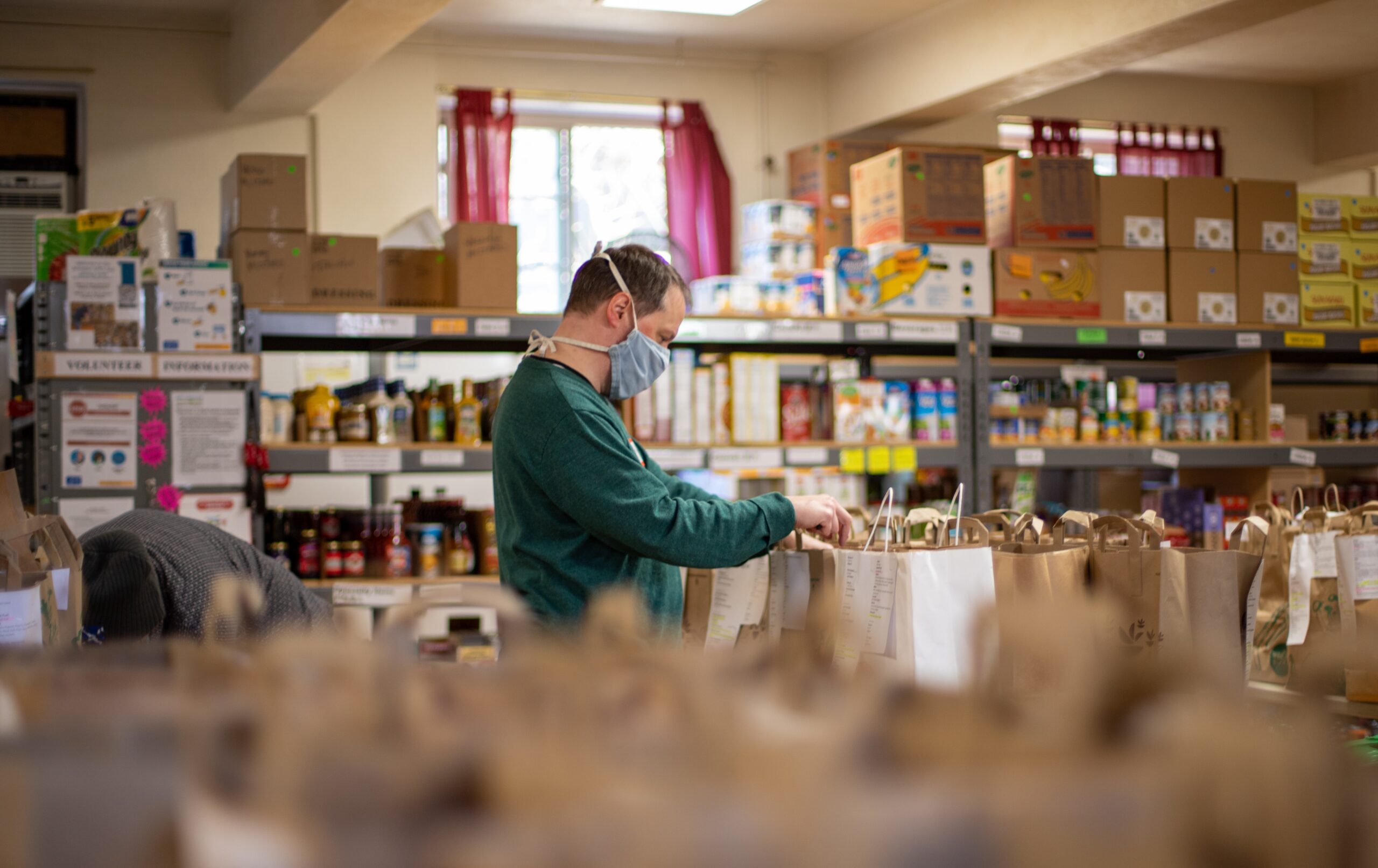
Charity Waste
Charities in the UK must arrange waste collection by licensed waste carriers to get rid of rubbish responsibly, legally, and safely. It could be clothes you can’t sell, spoiled food, or other refuse. This applies to any type of waste, whether you run a charity shop, animal shelter, community foodbank, or any other voluntary organisation.
At Business Waste we can arrange charity waste collection anywhere in the UK to ensure your rubbish is removed regularly and properly. Improve waste management for your charity with a wide choice of bins, recycling, and disposal services to get rid of any regular or one-off waste streams responsibly, cost-effectively, and efficiently.
Contact us online or call 0800 211 8390 today for a free quote for waste collection from your charity shop or voluntary organisation anywhere in the UK. Discover more about our charity waste services.
Get a free quote
Get a fast FREE quote for your charity waste
- Free quote within 1 hr
- Any type of charity waste
- FREE bins and delivery
- We cover all of the UK
What is charity waste?
Charity waste is any rubbish produced by a charitable organisation. This could be a charity shop, food bank, or animal shelter. Types of charity waste vary greatly from battered books that shops can’t sell to damaged clothes that are unwearable and inedible food leftover from a weekly community lunch for elderly locals.
Unfortunately, plenty of people take junk to charity shops that aren’t fit to donate, resell, or even reuse. This is a big source of charity waste, as the voluntary organisation must then get rid of it responsibly. In most cases, charity waste classifies as commercial waste, so not-for-profit organisations must arrange commercial waste collection. This includes for:
- Clothing and textiles – unwearable and damaged clothes, curtains, rugs, and other textiles either donated to or used by charities.
- Food waste – leftover and waste food from community lunches, food banks, charity meals, and other events.
- Books, toys, and games – broken and damaged goods donated to charity shops that are unusable and unsellable.
- Clinical waste – any kind of medical waste produced by charitable organisations, such as animal shelters.
- General waste – all charities produce some level of general waste in their activities, from food wrappers thrown away in bins in charity shops to daily rubbish created in offices.

Charity waste bins
We can provide a wide range of free bins for your charity to store any type and amount of waste you produce. Separate rubbish by materials to ensure as much as possible is recycled with bins for everything from cardboard and glass to textiles. Store it all safely and securely before collection.
Bins range in size from small wheelie bins to front end loaders, and compactors. If you’ve got a big site and create high volumes of cardboard waste then a baler could be a cost-effective option. However, most charity shops and other organisations use wheelie bins of various sizes for their waste management needs.
Explore some popular bins for charity waste:
How do charity waste collections work?
-
Select your free bins
It’s quick and easy to organise commercial waste collection for your business.
Simply start by telling us the:
- Type of waste you need removing
- Size of bins you require
- Number of bins you want
We’ll provide you with a free quote.
-
Arrange delivery
When you’re happy with the type, number, and size of free bins, tell us when you need your bins delivering.
Let us know about any access issues where you want the bins delivering – such as locked gates, access codes and times. We’ll get you up and running in no time.
-
Fill up your bin
After the free bins arrive at your chosen location, fill them up with the agreed waste type.
Make sure you remain within any weight limits for the specific waste type and bin size.
-
Get your business waste collected
We’ll arrange waste collection at a time and frequency to suit you and the amount of waste you have.
As featured in…
What happens to charity waste?
Charity waste is managed in the same way as commercial waste. What happens to charity waste after it’s removed from your premises depends on its type and material. At Business Waste we aim to recycle, recover, and reuse as much waste collected from charities as possible to reduce the amount of rubbish sent to landfill.
Examples of what happens to charity waste for common materials include:
- Books – paperback books are normally recycled with other waste paper. The glue is removed, and the papers are pulped and turned into new recycled paper. With hardback books, the cover and glue are removed and processed separately.
- Cardboard – different grades of waste cardboard can be recycled together. The sheets are shredded, mixed with water, and eventually dried and pressed to form new sheets of cardboard.
- Clothing and textiles – the type of textiles affects the recycling process. Natural textiles are cleaned, and fibres are separated and then spun into new yarn. Polyester is shredded and melted to form fresh polyester fabrics, while other artificial textiles might be used to fill materials like furniture padding.
- Food – waste food is often sent for composting to naturally recycle the organic materials. Alternatively, it might go to an anaerobic digestion plant. Here it’s used to generate energy and create a fertiliser.
- General waste – rather than going to landfill it’s better for general waste to be incinerated in controlled conditions. This can turn general waste into refuse-derived fuel, which is used as an alternative to fossil fuels.
- Toys and games – the materials any toys and games are made from affect what happens to them. Some plastic toys can be recycled depending on the type of plastic, while elements such as metal might also be removed and recycled separately. In many cases, they will be disposed of with general waste and incinerated.

How to reduce charity waste
One of the main causes of charity waste is people dumping (or donating) unwanted items at charity shops that are unsellable and unusable. According to research only 3 in 10 charity donations make it to the shelves. The charity then must get rid of all these unusable items as their own waste.
Only donating items in good condition and responsibly disposing of anything unlikely to be resold or used helps reduce charity waste. Check anything you plan to donate at home and recycle or dispose of it at home if it’s not good enough. These are a few ways to ensure your donations will be used and not create more waste:
- Clean clothes – wash and dry all clothes and other textiles before donating to improve the chance of them being sold or reused. Many charities sort through soiled items that are thrown out.
- Inspect quality – consider whether you’d buy the item in the condition it’s in. If you wouldn’t then dispose of it at home or make any fixes if possible, such as sewing on a missing shirt button or repairing a broken toy. Most charities don’t have the time or resources for this, so may send poor-quality items to waste.
- Donate directly – take any donations to an actual charity shop and ask anyone working there if they’ll accept your items. If not then you should take them away and dispose of them through other means to save the charity the hassle and adding to their waste.
- Check furniture labels – there are various safety regulations charities must follow. Ensure any furniture you donate has the relevant fire safety labels attached and check if any other labels are required for the charity shop to resell such items.
- Purchase less – simply buying fewer clothes in the first place reduces how many items are donated to charities and subsequently wasted. And if you do need some fresh threads consider browsing your local charity shop first to further reduce clothing waste.
Read our reviews
Started using Business Waste this year to look after the Charity waste disposal and everything has been great. Easy to set up, great communication from the whole team. Most recently I’ve been in contact with David and Poppy for some specialist removals and it was arranged effortlessly and quickly. Thank you so muchPeter Lloyd
Arrange charity waste removals
Book removal of any type and amount of waste from your charity shop, voluntary organisation, or any other charitable group from anywhere in the UK with Business Waste. We can provide free bins to separate and store waste from your charity and remove it at a convenient time.
One-off and regular removals of charity waste are available. Organise daily, weekly, or fortnightly collections of your charity waste so your rubbish doesn’t build up and cause logistical and hygiene issues. We ensure as much of your waste as possible is kept away from landfill to help the environment.
Speak to one of our expert and friendly team for a fast solution for your charity waste management. We can advise on the best bins and collection schedules for your organisation and answer any questions you have about dealing with rubbish as a charity.
Get a free no-obligation quote for charity waste collections anywhere in the UK today – call 0800 211 8390 or contact us online. All quotes are tailored to your specific needs, and we can advise on the best solutions for cost-effective and reliable waste collection.
Charity waste FAQs
-
Do charities pay for waste management?
Charities must pay for their waste management. Charity waste classifies as commercial waste, so any voluntary and not-for-profit organisations must pay for waste collection services. This can include everything from bin rental to removals by licensed waste carriers. At Business Waste we provide free bins for affordable charity waste management – you only pay for collection.
-
Do charities need a waste carrier’s licence?
Anyone who transports charity waste must have a waste carrier’s licence to do so legally. This is because charity waste is a type of commercial waste. Therefore, any charities that move waste from their shops, sites, or premises to a waste management facility must use licensed waste carriers.
You must ensure drivers of any cars, vans, or trucks that transport rubbish from your charity for disposal have a waste carriers’ licence. An easy way to do this is to use a commercial waste collection company such as Business Waste, as all our drivers are licensed waste carriers.
-
What are some recycling charities in the UK?
There are many charities in the UK dedicated to recycling. Some popular UK recycling charities are:
-
What do charity shops do with stuff they can’t sell?
Unfortunately, most charity shops will dispose of anything they can’t sell. This could be because it’s in poor condition or has attracted no interest from potential buyers. Some clothes and textiles might be sold to textile recycling companies. This helps to still make money for the charity and ensures the items are recycled and reused.
-
How can I ensure charity donations will be accepted?
There are a few things you can do to improve the chance of any charity donations being accepted:
- Assess the quality of anything you want to donate to ensure it’s in a usable condition.
- Clean and dry any clothes or textiles so they’re in the best possible state.
- Speak to someone at a charity shop to see if they accept the things you want to donate.
- Check all required labels are present on any clothes, furniture, and other items so they can be resold safely.
- See if the charity is after any specific items, which could speed up how quickly they’re put on the shelves.
Get a fast and free quote
Get a fast FREE quote for charity waste collection
- Free quote within 1 hr
- Any type of charity waste
- FREE bins and delivery
- We cover all of the UK